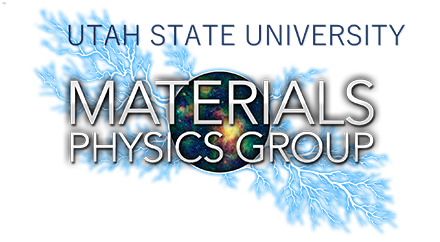Document Type
Presentation
Journal/Book Title/Conference
American Physical Society Four Corner Section Meeting
Publication Date
10-17-2014
Abstract
Samples of highly disordered insulating material have been irradiated with keV electron beams, resulting in three forms of electron induced light emission with differing duration: arcs (duration), “flares” (~100 s), and cathodoluminescence (as long as beam is on) [Dennison, 2013]. The arc and cathodoluminescence phenomena are well understood, while the flares’ origins are not. Flares were observed at intervals of ~2 per hr. This is within a factor of 2 for the expected muon cross section at an altitude of Logan, UT (1370 m) caused by high altitude cosmic rays; those high energy particles could have deposited sufficient energy throughout to discharge the insulators. Based on this suggestive evidence, we have proposed incorporation of standard muon coincidence detection apparatus into our vacuum cathode luminescence test facility. Measurements of the muon cross-section zenith angle and angle-dependence will provide calibration of the muon detector. If muon evidence coincides with the flare events, this will provide definitive evidence of the flare origin. We will discover whether a correlation between flares of charged sample is caused by transitory muons which trigger discharge and subsequent recharging during our testing of space materials [Zia, 2014b].
Recommended Citation
Kenneth Zia, Justin Dekany and JR Dennison, “Cathodoluminescence Events Coincident with Muon Detection,” American Physical Society Four Corner Section Meeting, Utah Valley University, Orem, UT, October 17-18, 2014.


